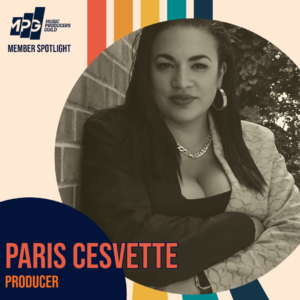 How would you define your main role on most of the projects you work on at the moment?
How would you define your main role on most of the projects you work on at the moment?
My role as a music producer is about bringing visions to life. I’m often entrusted with clients’ musical ideas or specific requirements, and it’s my responsibility to shape and refine these into a cohesive and polished final project. The essence of being a producer in my role lies in interpreting diverse musical perspectives and transforming them into a sound that resonates with everyone involved. It requires a distinct blend of skill and adaptability to develop a unified sound while working with a wide range of artists, each with their unique styles. This ability to synthesize is a key part of my role and what makes it truly special.
Please tell us a bit about your musical background. How did you get started in the music industry? What was your pathway to your current role?
I began studying music at a young age, starting with basic instruments like the recorder in primary school and gradually moving on to guitar, piano, and saxophone. By age 13, my interest in production emerged, and I started creating full songs, merging my formal music studies with hands-on experience. Playing saxophone in school big bands and classical orchestras exposed me to the intricacies of orchestration, which deepened my passion for harmonics and arrangement. I was fortunate to experience a variety of genres, from traditional jazz and classical at school to the soul, R&B, jazz fusion, and funk at home. These influences, along with the discipline of classical training and the edge of modern production, shaped my signature style of jazz-infused dance music.
What or who inspired you to follow this path?
My inspiration came from a mix of experiences and musical influences. My father was a passionate record collector, and my mother co-owned a record shop with her brothers (my uncles), so music surrounded me from an early age. My love for it was almost instinctual, and by age three, I was singing along to songs before I could even fully talk. Early inspirations included the innovative production work of Missy Elliott, Timbaland, and Pharrell Williams, whose unique sounds made me want to become a producer. Over time, I became drawn to the harmonic sophistication of artists like Joe Sample, Quincy Jones, and Bobby Caldwell, which influenced my approach to music. Later, discovering legends like Louie Vega, Kenny Dope, DJ Spen, and Kerri Chandler inspired me to incorporate modern electronic elements into my work, leading to the unique fusion that defines my productions today.
Are there any highlights from your work that you are particularly proud of?
I’m proud of most of my work for various reasons, but my recent remix of Boy George’s 90s classic, ‘You’re Not the One’, stands out. Bringing a soulful dance interpretation to this track allowed me to introduce Boy George’s music to a new audience while resonating with his existing fans. It’s moments like these, where I can amplify an artist’s voice and connect with listeners in a new way, that make producing so rewarding. This song is currently under Grammy consideration for best remixed record and so I am very excited!
What’s one tip you can share with other MPG members that could help their workflow?
I’m a big advocate for efficient workflow because, as producers, we are also project managers, and the goal is to complete projects effectively. My advice is to trust your instincts and avoid overthinking decisions. When you start second-guessing every sound or drum choice, it can lead to endless tweaking and stall progress. Make confident choices on the spot, and keep moving forward—your ears made those decisions in the moment for a reason. Personally, I prefer building all the foundational sounds first and then refining the arrangement later. By focusing on consistent output rather than perfection, I can keep my momentum and let each new project be a learning experience. For me, building a strong discography is key; every song adds to my journey as a producer.
What’s one tip you would like an MPG member to share with you?
As a predominantly electronic producer, I’m always keen to expand my knowledge in acoustic production techniques. Any insights into acoustic sound production would be greatly appreciated.
Do you have any words of wisdom for people wanting to get into a similar music production role to yours?
To excel in a role like this, a mix of practice, music theory, and resilience is essential. While some may downplay the importance of music theory, I believe it’s been my superpower, enabling me to produce independently without relying on other musicians. Proficiency in instruments and technical skills have allowed me to maintain a high output, and my advice is to keep creating, keep learning, and keep pushing forward. Each song is a stepping stone to becoming a better producer, and the journey is about growth, both in skill and sound.
Read more MPG Full Member Spotlight interviews